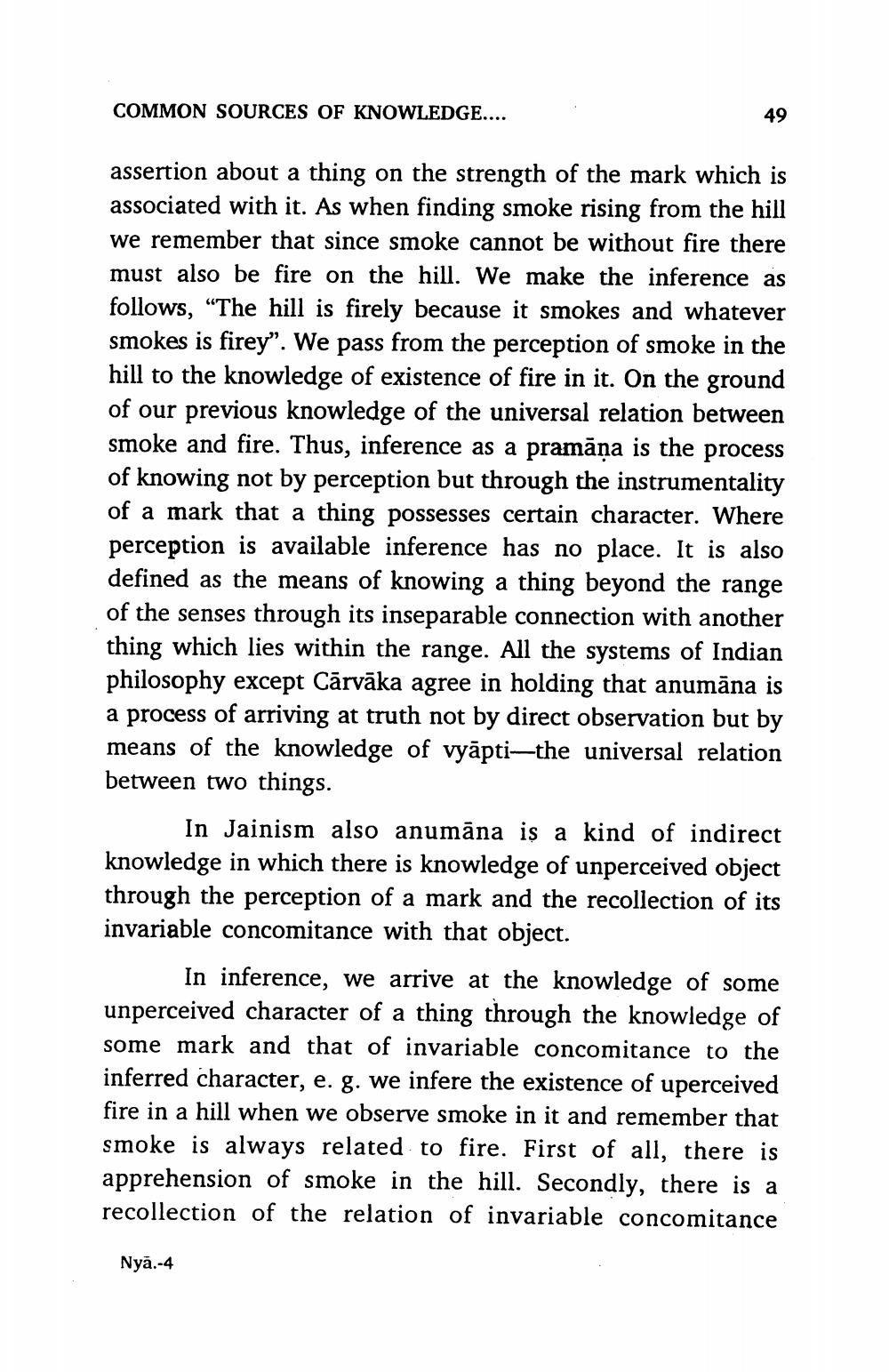________________
COMMON SOURCES OF KNOWLEDGE....
49
assertion about a thing on the strength of the mark which is associated with it. As when finding smoke rising from the hill we remember that since smoke cannot be without fire there must also be fire on the hill. We make the inference as follows, "The hill is firely because it smokes and whatever smokes is firey". We pass from the perception of smoke in the hill to the knowledge of existence of fire in it. On the ground of our previous knowledge of the universal relation between smoke and fire. Thus, inference as a pramāņa is the process of knowing not by perception but through the instrumentality of a mark that a thing possesses certain character. Where perception is available inference has no place. It is also defined as the means of knowing a thing beyond the range of the senses through its inseparable connection with another thing which lies within the range. All the systems of Indian philosophy except Cārvāka agree in holding that anumana is a process of arriving at truth not by direct observation but by means of the knowledge of vyāpti-the universal relation between two things.
In Jainism also anumana is a kind of indirect knowledge in which there is knowledge of unperceived object through the perception of a mark and the recollection of its invariable concomitance with that object.
In inference, we arrive at the knowledge of some unperceived character of a thing through the knowledge of some mark and that of invariable concomitance to the inferred character, e. g. we infere the existence of uperceived fire in a hill when we observe smoke in it and remember that smoke is always related to fire. First of all, there is apprehension of smoke in the hill. Secondly, there is a recollection of the relation of invariable concomitance
Nya.-4




